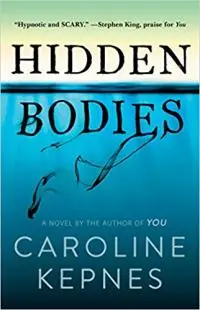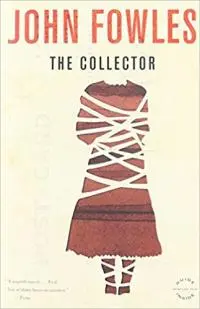I love you.
Written, it’s a straightforward statement, subject verb object, defining the connection between two entities. ‘I’ is obviously me, the originator of the thought and ‘you’, well, that’s whoever, whatever I choose — a burrito, a pony, a pleasantly mannered and sanitary human of within plus or minus five years of my current age. ‘I’ selects ‘you’ — from all the other yous — as the object of desire. I don’t care if there’s a mismatch between my inclination and your volition. ‘I love you’ shoots an arrow through a scribbled heart, U 4 Me 4EVA. Resistance is futile.
And why would you resist? ’I love you’ is an honor, the engine of art, poetry, romance, social and spiritual validation, the threshold to a higher plane of existence. “Whoever does not love does not know God” (1 John 4:8). ‘I love you’ is energy. It galvanizes. We’re more intense, more storied, more worthy when we’re living an ‘I love you’. Its absence is the abyss. Lacking love, you decay into a lonely and pitied stereotype, a spinster with a cat or incel with a gun.
And yet, and yet. ‘I love you’ can be a dangerous assumption, for both you and I. In expressing the sentiment, I can make you feel amused, confused, hurt, frightened. You might giggle, or you might call the police. ‘I love you’ can be an embarrassing misunderstanding or an outright act of aggression. It can provoke ridicule or deep horror. The hazards of ‘I love you’ may not be apparent until after it’s professed.
 Anyone who has ever rolled the words ‘I love you’ around their own mouths knows the dilemma. Am I allowed? Is this a good decision, today, tomorrow, next year, or should I have said it five years ago? Will I regret it, or will I never be as glad of anything my whole long life? Saying ‘I love you’ out loud is an act of faith and intuition –– and even the most empathic among us can get it wrong. ‘I love you’ can be a serious transgression. The boundary between you and I is an invisible line and I cannot tell where it is, or how much of a barrier it represents until I attempt to breach it. And once my ‘I love you’ arrow is loosed against it, it cannot be repossessed. ‘I love you’ commits to a position that must be defended or relinquished forever.
Anyone who has ever rolled the words ‘I love you’ around their own mouths knows the dilemma. Am I allowed? Is this a good decision, today, tomorrow, next year, or should I have said it five years ago? Will I regret it, or will I never be as glad of anything my whole long life? Saying ‘I love you’ out loud is an act of faith and intuition –– and even the most empathic among us can get it wrong. ‘I love you’ can be a serious transgression. The boundary between you and I is an invisible line and I cannot tell where it is, or how much of a barrier it represents until I attempt to breach it. And once my ‘I love you’ arrow is loosed against it, it cannot be repossessed. ‘I love you’ commits to a position that must be defended or relinquished forever.
‘I love you’ is so damn tricky — which is where fiction hits the spot. Through romantic novels, plays, movies, and poetry, we can romp through a whole spectrum of ‘I love you’ scenarios without ever risking our own hearts, dignity — or personal safety. The main character takes the risk that unnerves us, crosses the line with an ‘I love you’ and faces whatever consequences play out. There’s an undeniable delight when a character says ‘I love you’ and gets the same right back. And then they, somewhat inevitably, live happily ever after and the reader has to seek their thrills elsewhere. However, there’s a delicious flip side to romance, when ‘I love you’ results in chaos from which no one is going to emerge happy, or even alive. This type of narrative can be way more fun. In our current era, when a stranger will share more of themselves via Twitter, Instagram and Facebook than our grandparents learned about each other in a lifetime, it’s no surprise that Stalker Lit is a Thing.
The king of this evolving subgenre is Joe Goldberg, the protagonist of Caroline Kepner’s You (the adaptation of which begins on Lifetime this Sunday). Joe assaults the conventions of ‘I love you’ with systematic, sociopathic, spectacular verve. Like many a romantic hero before him he’s self-confident enough to fall in love at first sight, when the insouciant Guinevere Beck walks into the NYC bookshop where he works. He pins her with his love arrow immediately, identifying her as his long-looked-for You:
You've come home to me, delivered at last, on a Tuesday, 10:06 a.m. Every day I commute to this shop on the Lower East Side from my place in Bed-Stuy. Every day I close up without finding anyone like you. Look at you, born into my world today.
He needs little encouragement from Guinevere (who goes by Beck as her first name is “kinda long and ridiculous”), other than the mild banter exchanged between a retail assistant and a customer who might be angling for a discount. That’s enough for Joe, who justifies his neonate obsession with the kind of circular logic that once drove Patrick Bateman.
You didn’t have to say my name. You didn’t have to smile or listen or take me in. But you did. Your signature is on the receipt. This wasn’t a cash transaction and it wasn’t a coded debit. This was real. I press my thumb into the wet ink on your receipt and the ink of Guinevere Beck stains my skin.
That credit card receipt seals the deal for Joe. It’s the golden key he uses to unlock Beck’s identity and, most crucially, her address. Some casual social media snooping gives him the rest. He realigns himself around her most frequented locations, manages to steal her phone, and quite literally lets himself into her most private places. Joe sees no problem with any of this. He has chosen Beck as his You, addresses his every waking thought towards her, claims full ownership of her will and emotions, and feels entitled to maneuver her into whatever descriptor he sees fit, which is of course “girlfriend”.
In a parallel universe, You is a true romance about a humble bookstore clerk who persuades the nicely upper middle class Beck first to date below market rent, and then to appreciate his unique brand of devotion as far greater than anything available from her equally posh current boyfriend Benji or her BFF, Peach. And then they all live happily ever. In our own eternally flawed (and probably much more interesting) realm, however, Joe’s obsession with Beck is a fast-paced thriller. Joe crosses every line there is, including theft, breaking and entering, fraud, and murder, in the demented service of his cause. ‘I love you’ is his supreme directive, rendering all other considerations, moral, social or legal, moot.
And he does it all with such charm! In his head (where the reader is deposited for the duration of the book), Joe’s a lover, not a creep. In Beck’s presence and within his stream of consciousness, he’s witty, urbane, self-deprecating, solicitous. He shows up when she needs him — even saving her from being squished under the wheels of a subway train. He listens, and seems to have an innate understanding of her frustrations with her friends without her having to explain the petty details –– the ones she’s explored at length in her private emails. In his head, he’s Mr. Darcy, Edward Cullen, and Noah Calhoun rolled into one. He’s Christian Grey without the helicopter, Jamie Fraser without the kilt, Augustus Waters without the tumors. Initially, anyway, his ‘I love you’ is tender and poetic, far superior to the usual twenty-something urban coupling:
I have taken you to France, to the chalice, to the moon, and you cease to move and a smile rolls over your entire body, and you're a lily pad, sun stroked and floating, rooted to the floor of the lake, me, dark, above you.
Despite his crimes and misdemeanors, Joe’s likely to capture your heart — even if he can’t seem to inspire the level of reciprocal attraction in Beck that he requires. He’s a poster boy for the stalker mindset; earnest, justified, unerring. How are we to judge him? It’s impossible to say exactly where he crosses the line — possibly with that first credit card transaction? — between strategic seduction and balls-to-the-wall stalking. And who’s to say you wouldn’t cross that line too, if you located an equally magnetic object of desire? Kepner keeps him arch, appealing, relatable, disarming — what’s he then that says I play the villain? — until the reader is utterly complicit in his conniving. In fact, she brings him back for a sequel, Hidden Bodies, a compelling continuation of Joe’s adventures in Los Angeles. Perhaps the most shocking thing about the novel is that his ‘I love you’ is neither fixed nor final. ‘I love you’ can move on — leaving devastation in its wake.
 Teddy Wayne explores a similar scenario in Loner, but grounds his protagonist’s stalker tendencies in a very specific context: freshman year at Harvard. Joe Goldberg is in his mid to late twenties, he’s had time to weave his web, practice his patter, and establish his romantic branding to perfection before Beck blunders along. By contrast, David Federman has no fucking clue what he’s doing. From a flush New Jersey family, nothing in his life experience so far has prepared him for the First Week plunge into the exquisitely nuanced social hierarchies operating within Harvard dorms. He’s gauche, inept, and unable to appreciate why thinking he’s met the eyes of one Veronica Morgan Wells across a crowded room is a seriously bad idea.
Teddy Wayne explores a similar scenario in Loner, but grounds his protagonist’s stalker tendencies in a very specific context: freshman year at Harvard. Joe Goldberg is in his mid to late twenties, he’s had time to weave his web, practice his patter, and establish his romantic branding to perfection before Beck blunders along. By contrast, David Federman has no fucking clue what he’s doing. From a flush New Jersey family, nothing in his life experience so far has prepared him for the First Week plunge into the exquisitely nuanced social hierarchies operating within Harvard dorms. He’s gauche, inept, and unable to appreciate why thinking he’s met the eyes of one Veronica Morgan Wells across a crowded room is a seriously bad idea.
Much bleaker than You, Loner follows a similar trajectory. David, like Joe, jettisons all other ambition in favor of the pursuit of Veronica. In some ways his mission is easier (because they’re classmates), but he lacks Joe’s swagger and studied lack of concern. While Joe congratulates himself on his bravado and creative problem solving, David ricochets through the academic year fueled by a coward’s whims. Joe has a master plan. David lurches from one catastrophe to another. We follow his logic — and anyone who’s ever been nineteen years old in a hostile environment can’t help but empathize with David’s emotional incompetence — but can’t condone his flawed decision-making. Loser represents the seedier side of Stalker Lit: it’s much more raw — and honest — than You. David definitely does not earn a sequel and is unlikely to be played by a Gossip Girl-minted hunk in the TV adaptation — how about Charlie Tahan?
Both You and Loner revolve around the idea that stalking is, in part, a folie à deux. As the narratives take place inside the male protagonist’s head, there is little space for the female lead to assert herself without his filters. Neither Beck nor Veronica is an innocent victim, so the story goes. They have a specific awareness of the attention they have attracted, and try to turn that dark energy to their own ends. They take advantage. This is a consequence of the first person narrative — even an unreliable narrator manages to color the reader’s view. They wanted it. They played the game. They were complicit and only have themselves to blame. This is why the granddaddy of Stalker Lit, John Fowles’ The Collector, still reigns supreme. I’ve written in depth on this site about The Collector before now, how its Rashomon structure, the he said/she said perspectives mine the true horror of ‘I love you’. Read it, and you’ll never smile brightly at a stranger again.
 ‘I love you’, as many women and men the world over know to their cost, can be the prelude to a crime. Love is not love when it meets resistance. ‘I love you’ isn’t always a mutual agreement. We need to back off before it turns to hate, abuse, violence. On one level then, as well as tickling our ‘What if?’ buttons, Stalker Lit should supply us with the cautionary tales we need to stay safe in the deep dark woods. Don’t talk to strangers. Don’t let the creepy dude at work give you a ride home. Don’t share your every #lifegoal on Instagram. Don’t enable location tracking on your phone. As Winnie Li illustrates in her gut-wrenching novel, Dark Chapter, when your instinct alerts you to the presence of a predatory 'I', you should run. Like Fowles, Li adopts a he said/she said structure for her narrative, alternating between the first-person accounts of an American woman hiking outside Belfast and the teenage traveler who sexually assaults her. The switches in perspective are all the more remarkable as the story is based on Li’s personal experience (she was raped in similar circumstances). Dark Chapter sketches out the diverse backgrounds of the two characters (Vivian is Ivy-League educated, the high-achieving child of immigrants, while Johnny was raised in a rusting metal caravan) before taking the reader through a random encounter between strangers that transforms both their lives — and not in a good way. When the kid chooses the tourist as the object of his desire, a blurry, delusional 'I love you' that's part drug-comedown, part faulty wiring (this is not his first assault) both characters are forced across a line and must struggle to find their way home. Li’s writing captures the visceral horror of the rape victim’s trauma while simultaneously probing the motivations and subsequent regrets of the rapist. No one’s a winner in this brutal page-turner, but if you’ve ever wondered why victims are reluctant to report rape, this roman à clef explains the process in clinical, furious detail.
‘I love you’, as many women and men the world over know to their cost, can be the prelude to a crime. Love is not love when it meets resistance. ‘I love you’ isn’t always a mutual agreement. We need to back off before it turns to hate, abuse, violence. On one level then, as well as tickling our ‘What if?’ buttons, Stalker Lit should supply us with the cautionary tales we need to stay safe in the deep dark woods. Don’t talk to strangers. Don’t let the creepy dude at work give you a ride home. Don’t share your every #lifegoal on Instagram. Don’t enable location tracking on your phone. As Winnie Li illustrates in her gut-wrenching novel, Dark Chapter, when your instinct alerts you to the presence of a predatory 'I', you should run. Like Fowles, Li adopts a he said/she said structure for her narrative, alternating between the first-person accounts of an American woman hiking outside Belfast and the teenage traveler who sexually assaults her. The switches in perspective are all the more remarkable as the story is based on Li’s personal experience (she was raped in similar circumstances). Dark Chapter sketches out the diverse backgrounds of the two characters (Vivian is Ivy-League educated, the high-achieving child of immigrants, while Johnny was raised in a rusting metal caravan) before taking the reader through a random encounter between strangers that transforms both their lives — and not in a good way. When the kid chooses the tourist as the object of his desire, a blurry, delusional 'I love you' that's part drug-comedown, part faulty wiring (this is not his first assault) both characters are forced across a line and must struggle to find their way home. Li’s writing captures the visceral horror of the rape victim’s trauma while simultaneously probing the motivations and subsequent regrets of the rapist. No one’s a winner in this brutal page-turner, but if you’ve ever wondered why victims are reluctant to report rape, this roman à clef explains the process in clinical, furious detail.
Lifetime’s version of You promises to be glossy and entertaining, Sunday night fun. Who doesn’t love Dan from Gossip Girl? And Joe, on so many levels, is a sweetheart, a self-aware romantic bumbler who just wants a relationship. What's he then that says I play the villain? He has an army of fans, #TeamJoe on Goodreads, who adore his humor, his irreverence, his scathing takedowns, and his pure, white hot obsession. He's the archetypal romance hero, your next book boyfriend, just so long as you can close the book on him when his behavior gets too much. That's the appeal of Stalker Lit, it allows us to indulge in a deviancy we might all be capable of, takes us across a line we've all contemplated, without having to face the consequences. It's a guilty pleasure. Yet, while we enjoy the license Stalker Lit gives us to imagine what it's like to be crazy in love, we should remember that IRL stalking is a crime that causes major damage to people’s lives and often ends in tragedy. I might end up in handcuffs, while you might be carried out in a box.
More than 7.5 million people per year in the United States are stalked — 85% of them by someone they know, and 11% for five years or more. Stalker Lit opens a window into the mind of the stalker, but rarely acknowledges the desperation and terror of the stalkee. If you’re being abused, isolated, followed, or in some way constricted by an intimate partner (or a casual acquaintance), first recognize that you are not alone. 'I love you' doesn't have to nail you to the wall. Know that you can reach out for help.
In the USA - Stalking Resource Center
In the UK - Paladin National Stalking Advocacy Center

About the author
Karina Wilson is a British writer based in Los Angeles. As a screenwriter and story consultant she tends to specialize in horror movies and romcoms (it's all genre, right?) but has also made her mark on countless, diverse feature films over the past decade, from indies to the A-list. She is currently polishing off her first novel, Exeme, and you can read more about that endeavor here .







